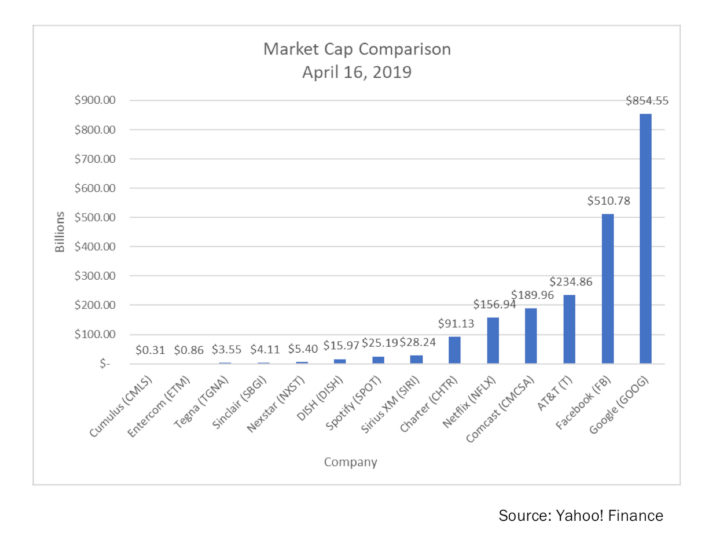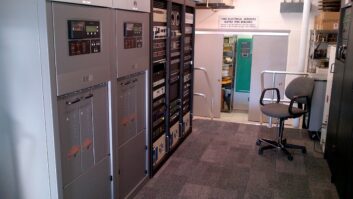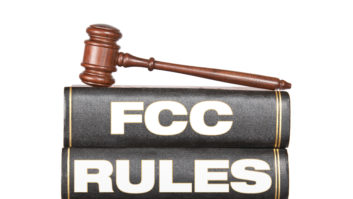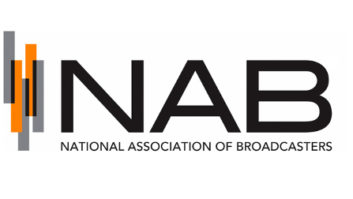It’s time for the Federal Communications Commission to shift its view of how and against whom broadcasters compete, so says the National Association of Broadcasters.
Today’s hypercompetitive marketplace and online-oriented media industry has so altered the advertising landscape for radio and TV broadcasters, the NAB said, that it’s time for the commission to change its ownership rules to better reflect the full range of media and advertising market participants and their competitive effect on broadcast outlets.
That was the gist of the NAB’s most recent comments on local radio ownership as part of the 2018 Quadrennial Review, during which the commission is reviewing its stance on the local radio ownership rule as well as two other areas: local television ownership and the dual network rule.
[Read: CBA to FCC: Rethink Broadcast Market Definitions]
According to NAB, radio stations are being hit particularly hard in today’s competitive marketplace. Despite the fact that 92% of U.S. adults still listen to broadcast radio in an average week, the depth and length of that listening is dropping, the NAB said. Stations in smaller markets with limited advertising bases are struggling to generate revenue with AM stations, in particular, facing special challenges in attracting listeners and advertisers in all markets.
The commission must reform the local radio ownership rule to better reflect marketplace reality. In its most recent comment filing, the NAB specifically proposed the FCC take the following steps:
- In Nielsen Audio markets 1–75, a single entity should be able to own or control up to eight commercial FM stations, with no cap on AM ownership;
- To promote new entry into broadcasting, an owner in these top 75 markets would be permitted to own up to two additional commercial FM stations (for a total of 10 FMs) by participating in the FCC’s incubator program;
- In Nielsen markets outside of the top 75 and in unrated markets, there would be no restrictions on the number of commercial FM or AM stations a single entity could own.
According to NAB, this proposal reflects the competitive changes in the marketplace that impact broadcast radio and specifically takes into account the special challenges facing small-market stations and AM stations.
“For broadcast radio to remain a meaningful provider of audio programming, and a viable competitor to non-broadcast outlets unencumbered by comparable regulatory restrictions, radio operators may need to achieve greater economies of scale,” the NAB said. “The commission must consider the significant competitive effects of technological change as part of its duty … to ensure its ownership rules keep pace with the competitive changes in the marketplace.”

The 94-page brief detailed concerns over listener attrition, the impact of device selection on content choices and audience fragmentation. It also pressed the commission to “stop ignoring” the competition radio stations face when the FCC dismisses non-broadcast participants in the media marketplace as insufficiently local. In previous quadrennial reviews, the NAB said the FCC discounted these competing audio sources — including satellite radio and online audio services — by saying they were not locally oriented.
“This position makes no sense,” the NAB said. “These myriad competing outlets — whether their content is local, regional, national or even international — impact radio (and TV) stations in the same way: they divert audiences and advertising revenues away from local stations, thereby making it more difficult for stations to continue competing effectively.”
Radio broadcasters need greater economies of scale, the NAB said.
“[T]he FCC still maintains ownership rules premised on the view that local TV and radio stations exist in markets hermetically sealed against the vast array of choices available to consumers and advertisers,” the NAB said. “NAB urges the FCC to adopt ownership rules accurately reflecting competitive realities in the modern media and advertising markets.”
NAB’s stance is at odds with others who have decried calls to consolidate radio, from Urban One to individual listeners.
“Consolidation of station ownership has made local radio nothing but a nationwide series of loudspeakers broadcasting essentially 10 different program[s],” said Ken Keller from Worthington, Ohio, a former radio employee who submitted comments to the FCC. “Please deny further consolidation and preserve truly local radio. They’ll be swallowed up or crowded out by conglomerates that already have so much control over what listeners hear on the radio in local communities nationwide.”
Others, like the nonprofit media firm Free Press, urged the commission to preserve the existing rules to protect the public “from the harms of further runaway broadcast media consolidation.”
“There is substantial evidence that media concentration has caused irreparable harm to the public, and Free Press members are still reeling from the harmful impacts of the commission’s most recent deregulatory efforts,” said Dana J. Floberg, policy manager at Free Press.
[Subscribe to our newsletter and get it delivered right to your inbox.]







